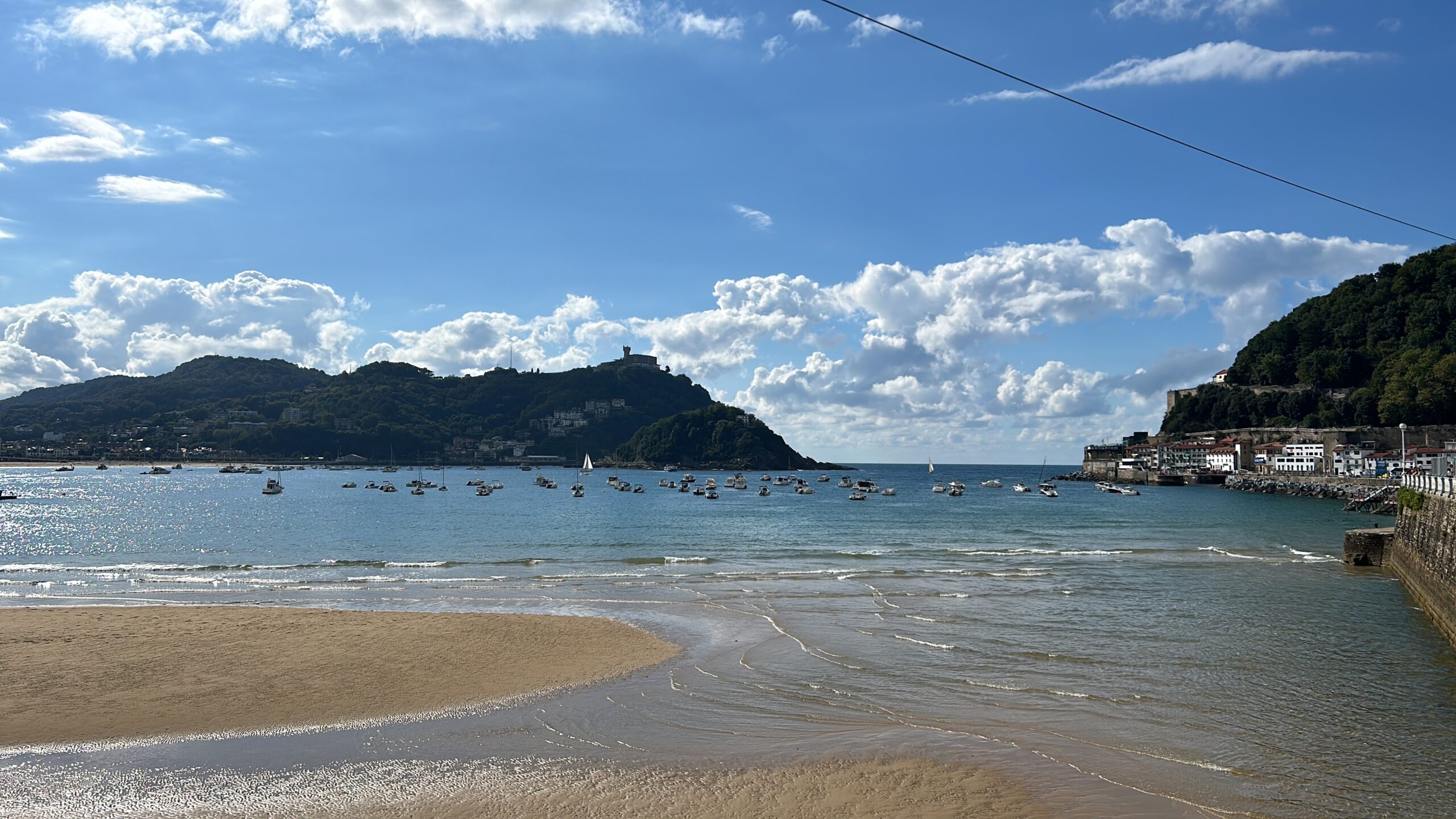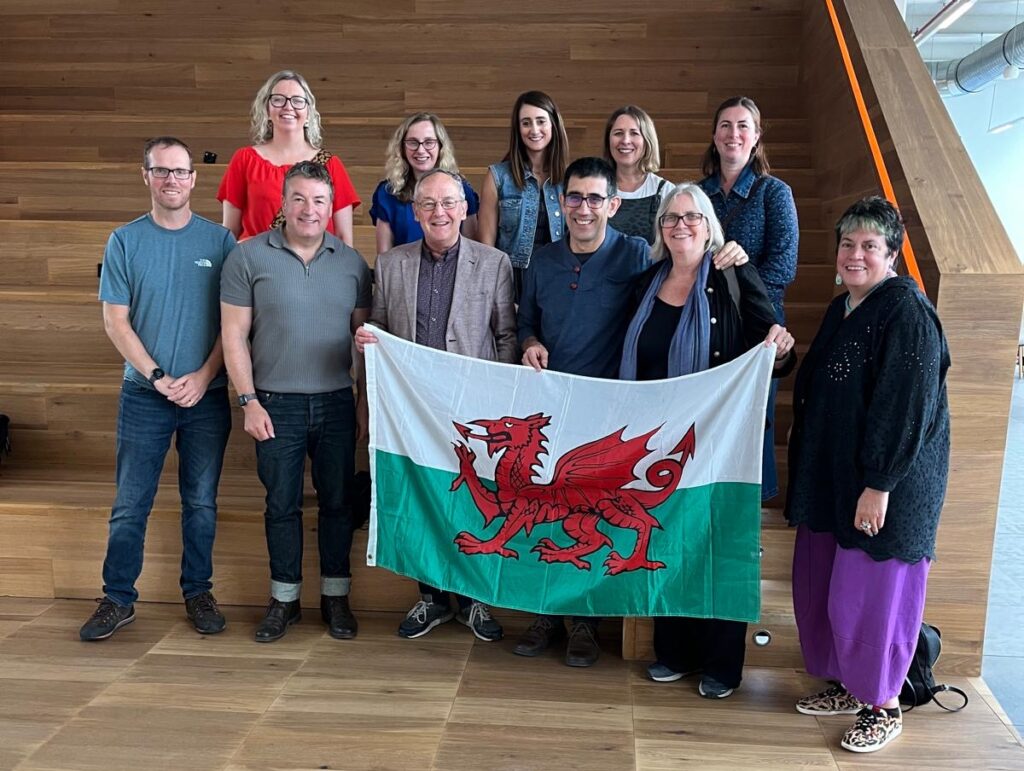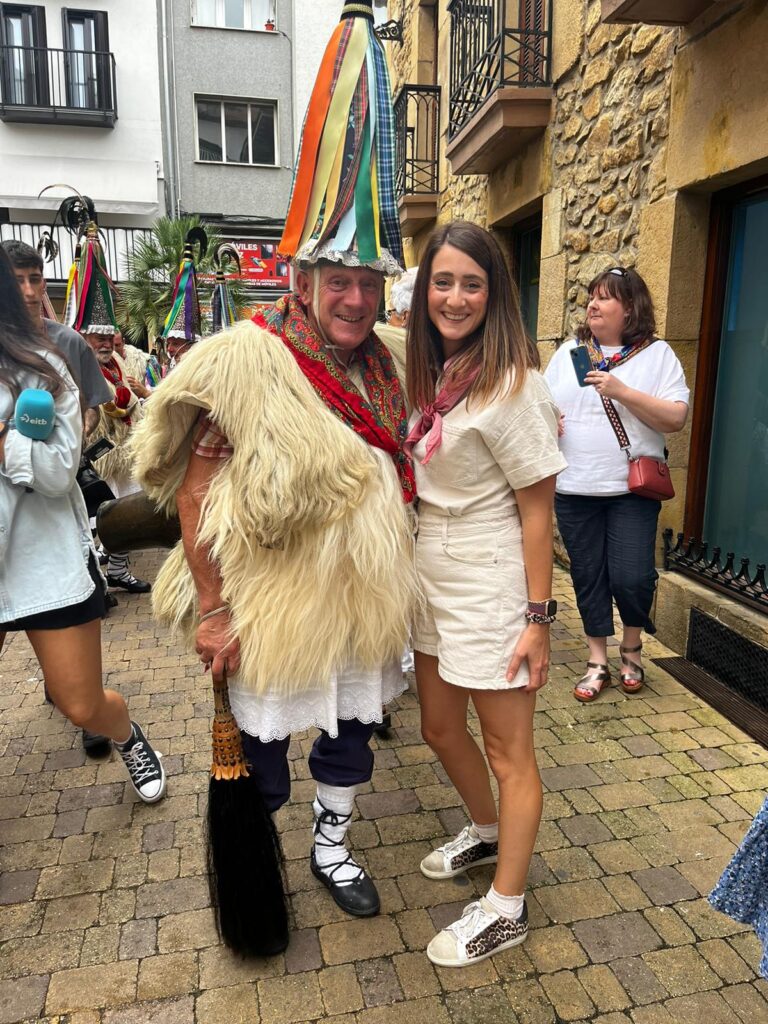
Sara’s Blog: From Wales to the Basque Country – ARFOR’s 2024 research trip.
A trip to the Basque Country: Learning from other experiences
An opportunity. An opportunity to benefit from the practical experience of strategies and projects that are in place. An opportunity to create links in order to collaborate further in areas of common interest between the two countries. And an opportunity to gain insight and develop an understanding of the status of the Basque language in the context of innovation and entrepreneurship. This was a research trip for a group of ten individuals supported by the ARFOR programme. And the purpose? To visit organisations, agencies, councils and businesses that operate in the field of language and economy. It was also a trip to learn and gain a better understanding of what is happening in the field of minority languages in another country along with understanding the link between language and the economy in a different country.

Inspiration from Euskal Jaiak: Celebrating Basque culture
The first visit of the trip was to the Euskal Jaiak festival in the town of Zarautz. This is a festival that brings together the best in terms of Basque culture, sport, the arts, folklore and traditions. A sea of Basques all decked out in their traditional clothing celebrating. And a magical atmosphere covering the streets of the town of Zarautz. It was nice to see people of all ages in their traditional clothing; babies and young children, young people and the elderly all decked out from head to toe! It was a Bank Holiday for the town's residents, with businesses and schools all closed so that everyone could join in the traditional dancing, eating and drinking! I wonder if this would be seen along the streets of towns in Wales? You could compare the festival to our regional eisteddfods – although this festival was on a much larger scale and felt much more inclusive. It was a privilege to have a taste of the celebrations and a chance to enjoy the excitement of the festival before meeting the rest of the ARFOR crew back in Donostia.

Innovation and Language: A visit to Tabakalera
We spent a lot of time meeting various organisations including Olatukoop and Bada Lab in Tabakalera, an old cigarette factory located on the riverside in Donostia. Today, it is a centre of enterprise and innovation in the creative industries and home to a number of co-operatives, organisations and businesses. There was a clear link between the ARFOR Challenge Fund and Olatokoop's work where collaborative enterprises are seen coming together to identify a challenge, and create pilot schemes to solve them together.
Connecting with the Community: Experiences in Andoain
In the town of Andoain, we visited the Martin Ugalde Business Park where over 20 businesses are located. They are agencies and organisations that specialise in language and the economy – Berria (the local Basque newspaper), Soziolinguistica Klusterra, Emun and Kontseilua which is the local government association of Basque speaking areas.
Challenges and Opportunities: Comparing Wales with the Basque Country
We had valuable and intensive discussions with Soziolinguistica Klusterra, which is a sociolinguistic cluster that works with universities, workplaces, enterprises, businesses, schools, other agencies and local and regional governments of the Basque Country. These discussions focussed on projects to strengthen the Basque language. The cluster runs 20–30 schemes in the field. It was a valuable experience to share examples of plans and considering the similarities and differences between the language plans of Wales and the Basque Country.
Obvious and similar challenges exist in both languages. The trip has enabled us to investigate more deeply how the two countries respond to those challenges. The use of social enterprises in the Basque Country is evident and they are certainly at the forefront. These are valuable lessons as we in Wales develop strategies to strengthen the use of the Welsh language. This was evident by visits to the institutions of UEMA, Contseilua (the Basque language council), Mondragon University in Bilbao and the Town Council and Mayor of Hernani, Xabier Lertxundi.
We heard about many examples of Basque speaking spaces flourishing in the Basque Country from Kike Amonarriz. Kike is a television presenter who has created a documentary and led a large number of initiatives that promote and revive the Basque language and spaces. In these spaces, a high density of Basque speakers is seen which, in turn, leads to strengthening the identity of those communities. Obviously, learning more about these communities was valuable when considering that strengthening the identity of Welsh speaking communities is one of the main objectives of the ARFOR programme.
The Tolosa area is a clear example of the efforts to revive the language in recent years. By piloting the innovative method and methodology of the 'street survey', where research is collected on the number of Basque speakers aurally, it was shown that Basque was the majority language aurally in 2021. It is a methodology that is used annually and voluntarily. It is an effective and low-cost method that leads to raising the profile and awareness of the Basque language.
It was said that the three main things that have led to the success of the language in the area are:
- Development in the education system;
- Associations that are in favour of the language;
- The town council – and specifically what it does to promote the language.
These techniques have been successful and have ensured a significant increase in the number of Basque speakers in Tolosa – although this has not been proven to the same extent in other areas. External factors such as the geographical location of Tolosa have strengthened this success. The schools have proven to be the centre of the revival as well as sports clubs and societies. Strong input and support were seen from the Local Council and Town Hall in ensuring that all services offered to young people change more into Basque from year to year. It was also decided to change the language of the biggest festival in the Basque Country for children and young people into Basque instead of Spanish. There is an obvious similarity here with Welsh festivals in Wales; The Eisteddfod, The Royal Welsh Show, Sesiwn Fawr Dolgellau, Tafwyl etc.
From the point of view of grant schemes in the Basque Country, there are strict guidelines and linguistic conditions in place. These ensure that schemes contribute to the language and commit to the Basque language. These are also considered by area to ensure consideration for the region. Again, a clear similarity was seen here with the ARFOR’s grant schemes, the Enterprising Communities and the Challenge Fund, where the emphasis is on strengthening the link between the Economy and the Welsh language.
Building Partnerships: The Future
Visiting another country and coming to understand and learn how that country operates in terms of language and the economy forces us to challenge our way of thinking and to reconsider our position in Wales. It provides the opportunity to build on partnerships and create new links. It is an effective way to exchange ideas and experiences, especially as we also come from a country that speaks a minority language. With this comes a solid foundation to be open to learning and sharing ideas.
So, what does such a trip mean in terms of the ARFOR programme and the future? The element of sharing learning and findings is key to the ARFOR programme and the lessons learned are a means of guiding the future of the programme. As a result of the trip, plans are now underway to invite individuals from various organisations to join us here in Wales. Creating strong links within the field and the ability to learn and share lessons from experts from different countries is a valuable means of ensuring the impact and sustainability of programmes.
Click here to watch a video of the trip.
[caption id="attachment_5316" align="aligncenter" width="1024"] UEMA – a local government association for areas where there is a high percentage of Basque speakers.[/caption]
UEMA – a local government association for areas where there is a high percentage of Basque speakers.[/caption]









